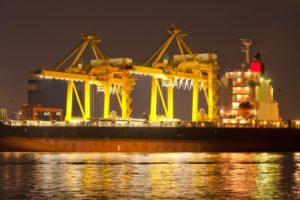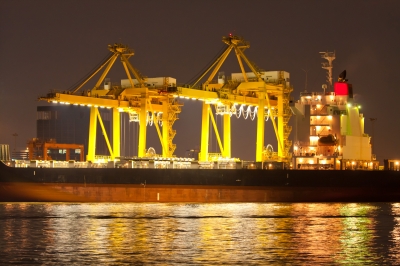 Considering the cost of operating ships in the Philippines, a shipping executive sees only two options if the government is to revoke the cabotage policy and therefore allow foreign ships to engage in domestic trade while ensuring a level playing field.
Considering the cost of operating ships in the Philippines, a shipping executive sees only two options if the government is to revoke the cabotage policy and therefore allow foreign ships to engage in domestic trade while ensuring a level playing field.
At the recent Maritime Law Association of the Philippines-PortCalls “Sea Change” maritime conference, Philippine Inter-island Shipping Association executive director Atty. Pedro Aguilar pointed out “there is a world of difference” at how Philippine maritime shipping policies and laws treat foreign shipping and domestic shipping operations.
The first option the government may take is to subject foreign shipping lines to the same tax regime, government regulatory restrictions, and other policies, such as the common carrier provision, that domestic shipping lines operate under.
The second option is to let domestic shipping lines enjoy the same benefits as foreign shipping lines in terms of tax regime, government regulatory restrictions, and other policies.
If the government takes the first option, Aguilar said foreign ships will decide not to call the Philippines because of the strict common carrier provisions under the Civil Code. He added that domestic shipping lines also pay additional premium on common carrier liability, which is higher than the standard.
“So if we take option one, my bet is that foreign ships will not go domestic,” Aguilar said.
He also noted that allowing foreign ships to engage in domestic trade without subjecting them to the same regime as domestic shipping lines “will kill the (domestic shipping) industry” because local carriers will not be able to compete.
“Right now we are not in a position to compete,” added Aguilar, who has said before that there are still no government moves to enact laws or policies that will really help the local shipping industry develop and become competitive.
He added that foreign ships are usually registered with countries that are flags of convenience and where regulations are “virtually nil”. Flags of convenience is a business practice whereby a merchant ship registers in a country that is not the country of its owner, a move taken to reduce operating costs or avoid regulations in the owner’s country.
Aguilar said some flags of convenience even allow registry of ships online and without the need to show the ship. Even in countries not classified as flags of convenience, shipping is not subject to the same tax regime as it is in the Philippines, and in lieu of income tax, shipping lines pay an annual tonnage tax.
Taking the first option will not lower freight costs since foreign shipping lines will be subjected to the same costs as domestic shipping lines.
If the second option is selected, which Aguilar said is the best choice for domestic shipping lines, the Department of Finance is expected to react due to potential losses in revenue. He recalled an incident when domestic shipping lines called the government’s attention to the fact that they had to pay fuel tax while local airlines did not. Instead of lifting the fuel tax on domestic shipping lines, the government extended the same tax to local airlines.
Different tax regime
Foreign and domestic shipping lines operate in very different tax environments, a condition which domestic shipping lines say s to their disadvantage.
Aguilar said that while foreign shipping lines calling the Philippines pay a 3% common carrier’s tax and 2.5% tax on gross Philippine billings, they enjoy zero tax on income and freight, zero duties, and no value-added tax (VAT) on steel plates, spare parts, and other supplies. Foreign shipping lines also don’t pay VAT when they dry dock in the Philippines.
Domestic shipping lines, on the other hand, pay 12% VAT on gross freight, 30% corporate income tax, 10% duties, and 12% VAT on steel plates, spare parts, and other supplies. They also shell out 12% VAT for dry-docking, and incur 12% VAT and 3% duties when they import vessels.
While foreign ships can dry dock anywhere, domestic ships are limited to shipyards registered with Marina pursuant to Presidential Decree No. 1221. Aguilar referred to World Bank data which reveals that dry-docking in the Philippines is 40% higher than in countries such as China, Japan, and South Korea.
International shipping lines also don’t pay tax on fuel, while domestic shipping lines are subjected to 12% VAT on fuel apart from having to pay excise tax and duties. Aguilar noted that fuel accounts for 40% to 50% of the operating costs of a ship. Foreign liners also refuel in other countries such as Singapore, where fuel costs are lower; domestic ships are forced to bunker only in the Philippines where fuel is more expensive and lower in quality.
Passenger, cargo security
In the matter of ensuring the security of goods and the safety of passengers, under the Carriage of Goods by Sea Act, or Commonwealth Act No. 65, foreign ships are only required to observe “due diligence.” This entails that they make the ship seaworthy; properly man, equip, and supply the ship; make the holds, refrigerating and cooling chambers, and all other parts of the ship in which goods are carried, fit and safe; and properly and carefully load, handle, stow, carry, keep, care for, and discharge the goods carried.
But domestic shipping lines, regarded as common carriers under the Civil Code of the Philippines, are required “extraordinary diligence” in exercising vigilance over the security of goods and safety of passengers. Common carriers are persons, corporations, firms, or associations that carry or transport passengers and goods by land, water, or air for compensation, offering their services to the public.
Due to the nature of their business and to public policy, common carriers are bound to observe extraordinary diligence in vigilance over the goods and passengers they transport.
And if cargoes are lost or damaged, foreign carriers are presumed not responsible in 17 circumstances including act, neglect, or default of the master, mariner, pilot, or the servants of the carrier in navigating or managing the ship; fire, unless caused by the actual fault or privity of the carrier; perils, dangers, and accidents of the sea or other navigable waters; act of God; act of war; and act of public enemies.
Under the Civil Code, domestic shipping lines, as common carriers, are presumed responsible for the loss, destruction, or deterioration of goods, unless due to any of these five causes: flood, storm, earthquake, lightning, or other natural disaster or calamity; act of the public enemy in war, whether international or civil; act or omission of the shipper or owner of the goods; the character of the goods or defects in the packing or in the containers; and order or act of competent public authority.
In all other cases, “if the goods are lost, destroyed or deteriorated, common carriers are presumed to have been at fault or to have acted negligently, unless they prove that they observed extraordinary diligence as required in Article 1733.” – Roumina Pablo
Image courtesy of Witthaya Phonsawat at FreeDigitalPhotos.net





